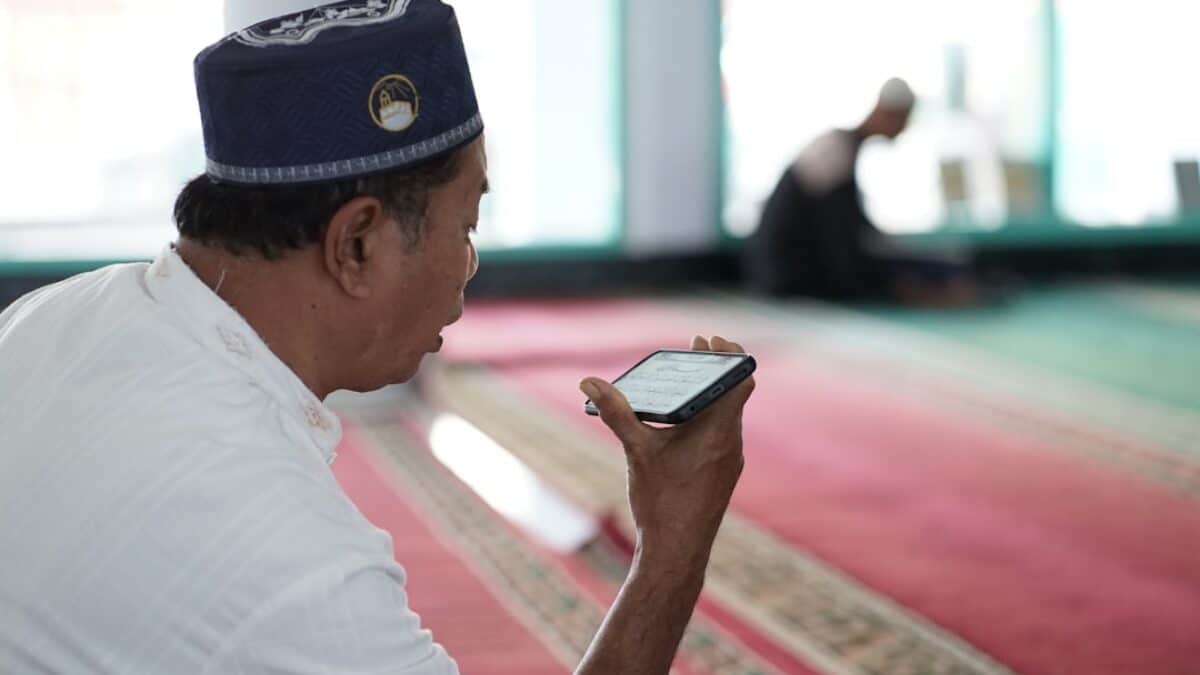In a world that spins faster with every notification ping, carving out quiet moments for spiritual growth can feel impossible. Yet Islam teaches that even a single sincere moment of reflection can outweigh hours of distracted routine. The good news is that the same smartphones that fragment our attention can also be re-engineered into gateways of barakah—blessings—through carefully chosen Islamic learning apps. Below, you will discover seven completely free applications that have already transformed millions of daily commutes, lunch breaks, and late-night feeds into micro-retreats of knowledge, remembrance, and worship. Each app was selected for its zero-cost access, ad-free or minimally ad-supported experience, and ability to deliver actionable spiritual insight rather than passive scrolling.
Understanding the Digital Dawah Phenomenon
Over the past decade, Islamic education has quietly migrated from the masjid classroom to the palm of your hand. Reliable fatwa portals, immersive Qur’an reciters, and gamified Arabic courses now sit alongside social media icons. Scholars have labeled this shift “digital dawah” because it carries the same essential mission as classical teaching circles: connecting hearts to Allah and His Messenger ﷺ. What makes the seven apps below stand out is their “freemium generosity”—they provide core content without ever demanding a credit card, while still maintaining scholarly rigor and user privacy.
Criteria Used to Rank the Apps
- Authenticity of Sources – Verified translations, chains of transmission, or endorsements from recognized bodies such as Al-Azhar, the Saudi Ministry of Islamic Affairs, or the Islamic Society of North America.
- Depth vs. Accessibility – Whether the app balances beginner-friendly design with depth for lifelong learners.
- Offline Capability – Ability to download surahs, du‘as, or lessons for airplane mode or low-connectivity environments.
- Privacy & Data Ethics – Clear privacy policies, optional registration, and no third-party trackers embedded in the source code.
- User Engagement Tools – Features such as streak counters, bookmarks, or social circles that encourage daily, consistent usage without addictive dark-patterns.
Key Components of an Effective Islamic Learning App
Before diving into the list, it helps to visualize what a holistic Islamic learning ecosystem looks like on your device. Picture a three-tier pyramid:
- Foundation Tier: Qur’an recitation, translation, and memorization aids.
- Middle Tier: Hadith collections, fiqh summaries, and daily adhkar (supplications).
- Peak Tier: Spiritually oriented lectures, tafsir deep-dives, and community-based study circles.
Every app below excels in at least one tier and integrates gracefully with the others, so you can stack them into a personalized digital madrasah.
Top 7 Free Islamic Learning Apps
1. Muslim Pro – The All-in-One Companion
Although widely known for prayer-time alerts, Muslim Pro’s free tier hides a treasure trove of learning tools. The “Qur’an Visual” feature color-codes tajwīd rules in real time, while the “Du’a Corner” offers 200+ authenticated supplications with phonetic guides and audio recitations. In Ramadan 2025, the app added daily micro-tafsir podcasts (2–3 minutes each) that unpack one ayah with actionable reflection prompts.
- Best For: Busy professionals who need integrated prayer alerts alongside bite-sized learning.
- Standout Free Feature: Offline audio recitations by 30+ reciters in high-quality 128 kbps.
- Privacy Note: You can use an alias email during registration; location data is stored only on your device.
2. Ayat – Al-Qur’an Al-Kareem – The Researcher’s Delight
Developed by the Saudi Electronic Moshaf Project, Ayat is an open-source powerhouse. The app contains 10 parallel translations (English, French, Hausa, Indonesian, etc.) and allows root-word searching in Arabic. For students of tafsir, the built-in Tafsir Tabari, Jalalayn, and Ibn Kathir are fully hyperlinked—tap an ayah, then jump straight to classical commentary.
- Download entire surahs in Sheikh Sudais’ voice for offline listening.
- Create custom bookmarks tagged with personal notes that export to PDF for study circles.
- Activate the “Night-Mode Mushaf” that mirrors the Madinah printing press colors, reducing eye strain during tahajjud.
3. Hadith Collection (Darussalam) – Authenticity First
Darussalam’s free app bundles Sahih al-Bukhari, Sahih Muslim, Sunan Abu Dawud, Jami‘ at-Tirmidhi, Sunan an-Nasa’i, and Sunan Ibn Majah—all cross-referenced with grade classifications by scholars such as Al-Albani and Al-Arna’ut. A favorite among madrasah teachers is the “Compare Isnad” tool that displays variant chains side by side.
| Feature | Free Version | Pro Version (Optional) |
|---|---|---|
| Full Hadith Text | ✅ | ✅ |
| Search by Topic | ✅ | ✅ |
| Audio Narrations | Limited (Bukhari only) | All 6 Books |
| Footnote Citations | ✅ | ✅ |
The free tier is so complete that most users never upgrade; Darussalam monetizes printed copies instead.
4. Al-Ma‘thurat Sughra – Morning & Evening Adhkar Automator
Based on the pocket-sized compilation by Imam Hasan al-Banna, this minimalist app divides the daily litanies into Morning, Evening, and Post-Prayer segments. A simple tap plays the Arabic audio and flips the card to reveal pronunciation and virtue text. The “Random Reminder” widget drops a new dhikr notification every 45–90 minutes, calibrated to Webb’s peak-end rule in behavioral psychology so the reminders feel uplifting, not intrusive.
5. Learn Quran – Tajwid – Gamified Pronunciation Coach
Designed by Indonesian scholars and speech therapists, Learn Quran uses interactive syllable-by-syllable scoring. Your phone’s microphone records you reciting “Alif-Dhal-Qaf” and instantly highlights mispronounced letters in red. The free tier grants access to Level 1–4 lessons (roughly 30 hours of content), which is enough to correct the seven major tajwīd mistakes identified by the Prophet ﷺ.
- Real-Life Impact: Ustadha Amina from Toronto reported that her weekend class improved average tajwīd test scores by 47 % within six weeks by integrating this app as homework.
- Offline Mode: Download each lesson in 720p video (~6 MB per clip) and submit practice recordings later when Wi-Fi returns.
6. Zakariyya – Arabic Unlocked – Vocabulary Builder for Qur’an
Named after the Prophet Zakariyya’s prayer for eloquence, this app teaches the top 1,200 root words that appear in 80 % of the Qur’an. Instead of flashcards, it uses spaced-repetition stories: you drag word tiles into comic-panel scenes to construct verses. The free track unlocks three new roots per day, with periodic quizzes that recycle older roots to reinforce memory.
- Track your “Heart Streak”—consecutive days without missing a lesson.
- Join public leaderboards segmented by timezone and age bracket for healthy competition.
- Export your learned-word list to Anki or CSV for integration with other study tools.
7. Radio Islamic – Live Scholars, Zero Subscription
While most audio apps lock premium series behind paywalls, Radio Islamic streams 24/7 live lectures from over 40 global stations—South Africa’s Radio Al-Ansaar, UK’s IQRA, India’s Radio Awaz—at no cost. A built-in “time-shift” slider lets you rewind up to six hours, perfect for catching last night’s tarawīh tafsir if you overslept. The app also curates short 5-Minute Fatwa clips answering contemporary issues like cryptocurrency or bio-banking.
Benefits and Importance of Using Islamic Learning Apps Daily
1. Micro-Habits that Compound
Behavior economists call it the “aggregation of marginal gains”: small, repeatable actions that snowball into massive transformation. When you recite three verses during a red traffic light or listen to one hadith while waiting for coffee, you embed Islam into neutral minutes that would otherwise evaporate unnoticed.
2. Democratized Access to Scholarship
A village in rural Bangladesh may lack a resident sheikh, but a $40 Android phone with these apps places Shaykh Ibn Uthaymin’s tafsir lectures one tap away. This flattening of religious knowledge reduces the risk of ignorant extremism and empowers women, who historically faced barriers to formal study circles.
3. Personalized Spiritual Analytics
Unlike paper notebooks, apps can quantify your relationship with the Qur’an: pages recited, mistakes corrected, streak lengths. While numbers never capture the heart’s reality, they surface blind spots—for example, realizing you have memorized 18 surahs but rarely recite past verse 10 in each.
Practical Applications and Daily Routine Blueprints
Morning Commute (15 minutes)
- 5 min: Al-Ma‘thurat Sughra morning adhkar (audio on low volume)
- 7 min: Ayat root-word search for today’s juz’
- 3 min: Muslim Pro prayer-time check and qibla compass
Lunch Break (10 minutes)
- Open Zakariyya – Arabic Unlocked and complete one root-word story.
- Share the newly learned word on your family WhatsApp group with the verse reference.
Night Routine (20 minutes)
- 10 min: Learn Quran – Tajwid lesson with microphone practice.
- 5 min: Hadith Collection bookmark one hadith and jot a one-sentence takeaway in the app’s notes.
- 5 min: Play Radio Islamic on sleep timer for Qur’an recitation.
Combining Apps for Deeper Study Circles
Launch a “Micro Halaqah” with three friends on Telegram:
Each person subscribes to Radio Islamic and clips a 60-second fatwa. Share the clip in the group chat with a timestamp. Use Ayat to paste the exact ayah referenced in the fatwa. End with a custom du‘a using Al-M
























Post Comment